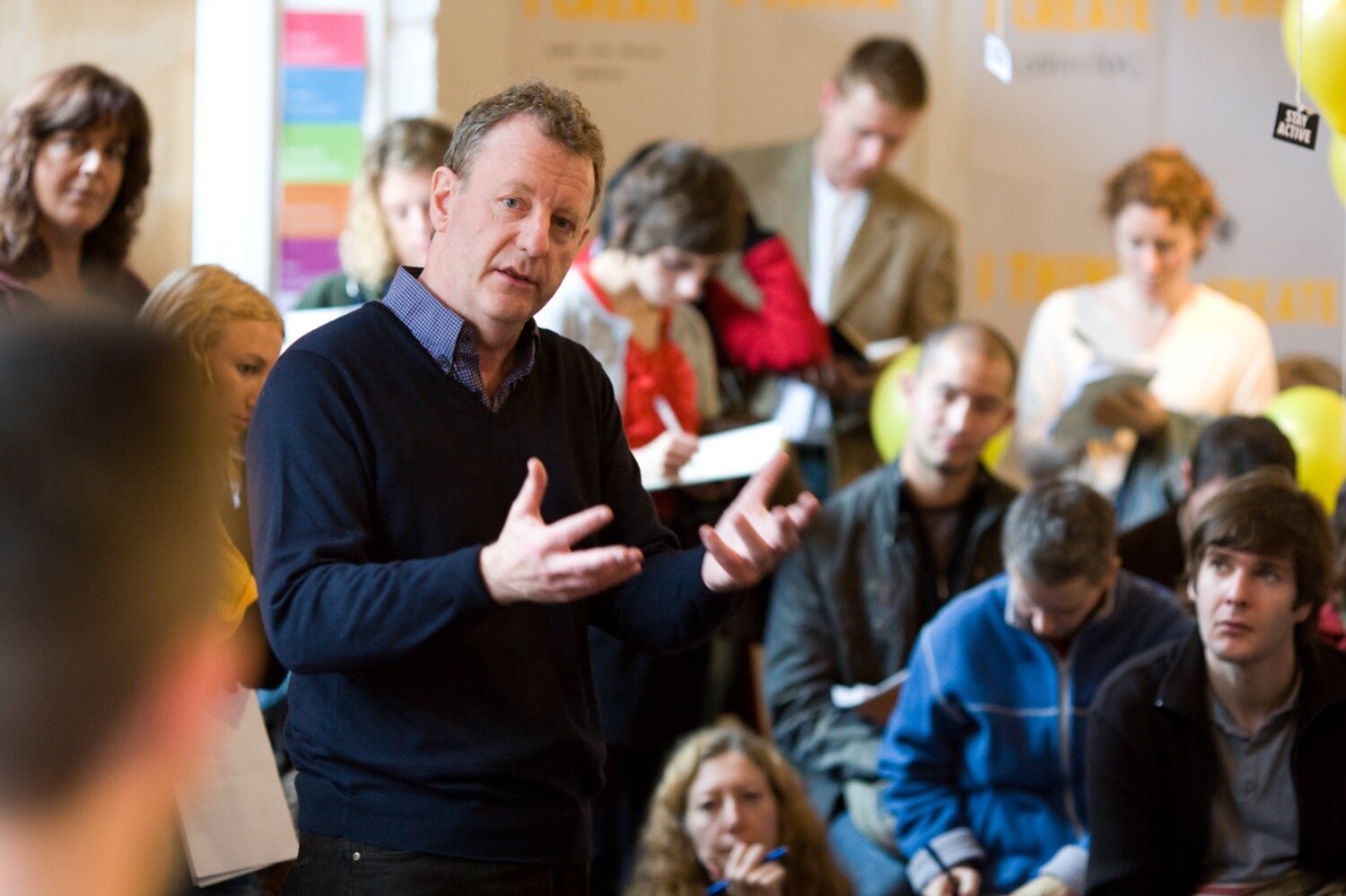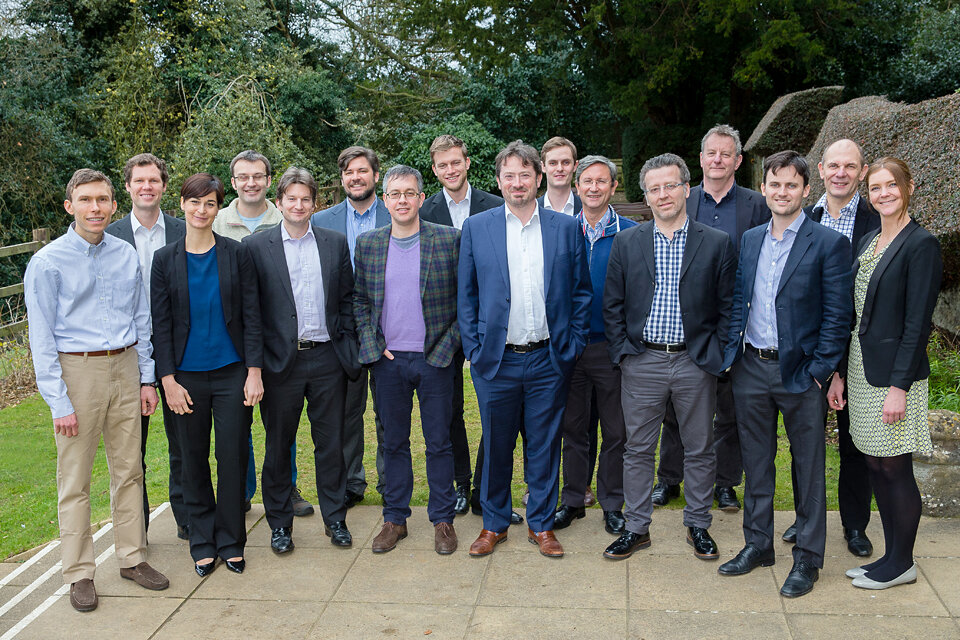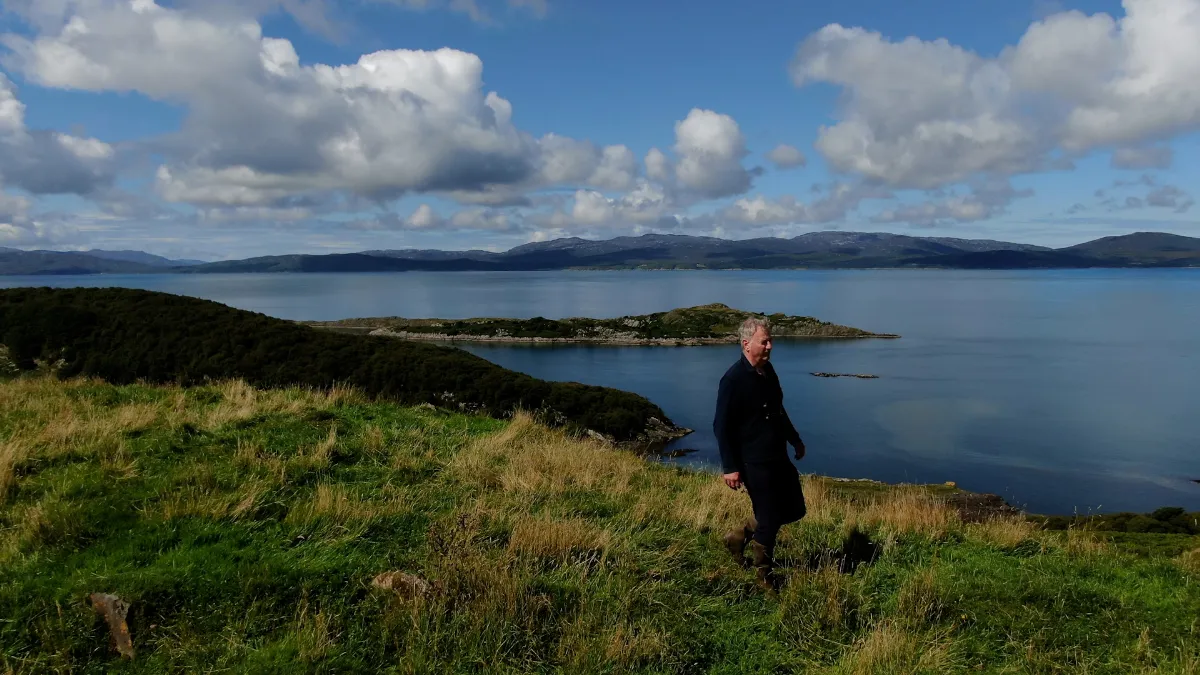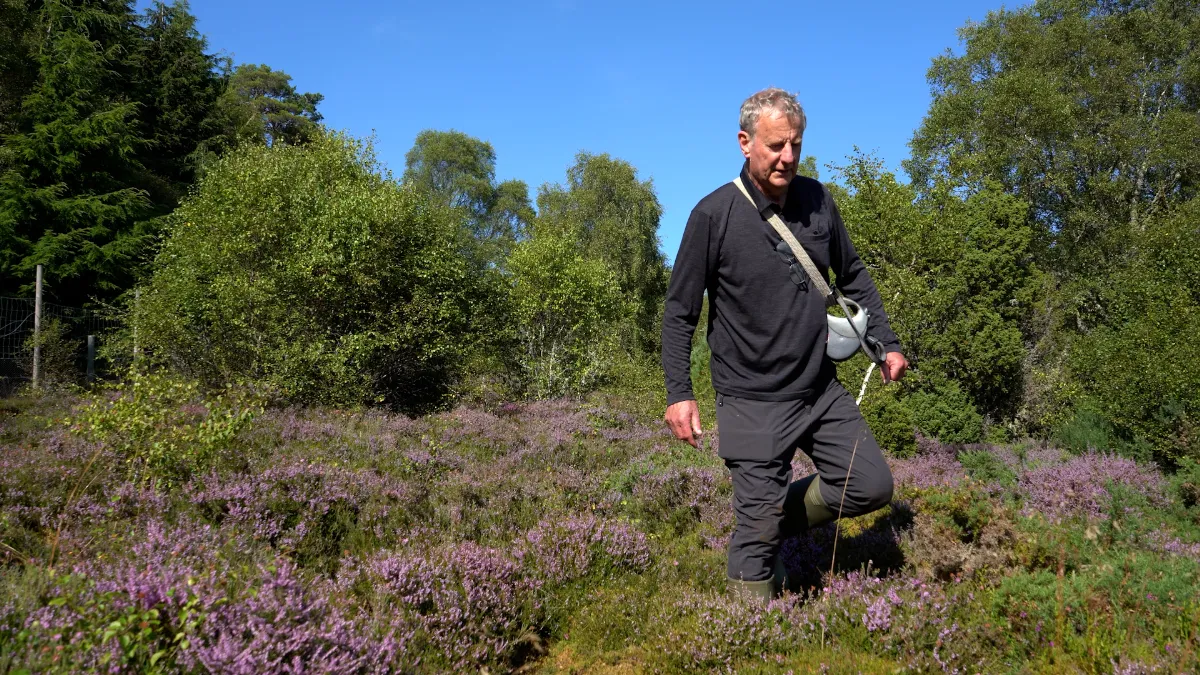af Magazine
~The Asahi Glass Foundation’s web magazine on the global environment~


The Maverick Social Entrepreneur Tackling the Climate Crisis: Dr. Jeremy Leggett's Philosophy of "Nature Restoration"
 top.jpg)
Described as "Britain's most respected green energy boss," Dr. Jeremy Leggett is a multifaceted person--social entrepreneur, climate change campaigner, and author.
We spoke with Dr. Leggett to explore the driving force behind his long-standing commitment to addressing climate change, a mission that has gone through many changes throughout his diverse career.

Through his many roles, Dr. Jeremy Leggett has had a major impact on the dissemination of renewable energy and on reshaping thinking in financial markets. Yet, his career began at a point almost diametrically opposed to where he is today.
For nearly a decade after graduating from the University of Oxford, he worked at the Imperial College of Science and Technology (now Imperial College London), where he conducted research on shale deposits, funded by major oil companies, and served as a consultant to the oil and gas industry.
"I think I was essentially defending and assisting the oil and gas industry," recalls Dr. Leggett.
A turning point came in the mid-1980s, when he read a scientific paper that addressed the looming threat of greenhouse gases (GHGs) and their impact on the global climate--at a time when the UK Met Office and other institutions were just beginning to raise the alarm.
"As an earth science researcher, I could foresee, to some extent, that future climate change would pose an existential threat to humanity; I was tormented by a strong sense of guilt, knowing that the oil and gas industry was contributing to that crisis. That's why I resigned from my position at Imperial College, as well as from my consulting work," says Dr. Leggett.
He subsequently joined Greenpeace, the international environmental NGO, where he led climate and energy policy initiatives as Science Director. In that role, he engaged in lobbying efforts directed at governments and major corporations across the globe. In Japan, for instance, he was involved in negotiations with the Ministry of Economy, Trade and Industry, the Ministry of the Environment, and major insurance companies.
Following his time at Greenpeace, Dr. Leggett founded Solarcentury in 1997.

Solarcentury is a solar energy company that develops large-scale solar farms and installs solar panels. At the time of its founding, solar power was still in its infancy, and there was no certainty of success.
Dr. Leggett explains what motivated him to take the leap into entrepreneurship:
"At Greenpeace, I had many opportunities to negotiate with businesspeople. When I spoke to them about climate change, many would say, 'Well then, why don't you try doing it yourself?'
That's when I decided to start a company and work directly on solutions to climate change. Of course, starting a business always involves risk. I wasn't confident that it would definitely succeed--but what I did have was a strong sense of purpose"
By around 2010, Solarcentury had grown into what was described in a UK newspaper as "the fastest-growing energy company," with operations spanning 16 countries across four continents. It became recognized as one of the world's most successful solar development companies.

(provided by Dr. Leggett)
What set Solarcentury apart was its unwavering commitment to the public good, particularly in addressing environmental issues.
Five percent of the company's annual profit was donated to SolarAid, the international charity founded by Dr. Leggett himself. SolarAid supported the distribution of solar lights in rural Africa, reducing dependence on kerosene lamps. This initiative not only helped lower greenhouse gas emissions, but also improved living conditions in impoverished communities.
"Many investors were opposed to the idea of sharing profit this way," Dr. Leggett recalls. "But I told them--if you're going to invest in Solarcentury, you need to be on board with this principle."
"At the same time, the initiative earned strong support from our employees. Knowing that part of the profits from their work was helping millions of people in Africa gave them a real sense of pride. That sense of purpose played a big role in keeping people with the company over the long term."
After putting Solarcentury on a stable footing, Dr. Leggett became the inaugural chair of the Carbon Tracker Initiative (CTI), a London-based nonprofit think tank founded by UK fund manager, Mark Campanale.
CTI specializes in analyzing the financial risks posed by the oil and gas sector in the context of climate change, offering data and insights to guide decision-making in capital markets.

(provided by Dr. Leggett)
It was within this context that Dr. Leggett helped introduce the concept of the "carbon bubble."
The carbon bubble refers to the overvaluation of fossil fuel assets held by companies--assets that are at risk of becoming stranded due to anticipated restrictions on fossil fuel use, driven by global climate policies.
While these reserves are still listed as valuable assets on corporate balance sheets, their actual worth could collapse if policies to reduce greenhouse gas emissions significantly limit their future use. This poses a serious risk of widespread asset devaluation, with potential ripple effects across financial markets--raising concerns that it could even spark a broader financial crisis.
"At the time when we introduced the concept, no one believed in the risks associated with the carbon bubble," Dr. Leggett recalls.
"But in 2015, during the UN Framework Convention on Climate Change (COP21) held in Paris, then-Governor of the Bank of England, Mark Carney, publicly addressed the issue. Not long after, the Task Force on Climate-related Financial Disclosures (TCFD) was launched, with Michael Bloomberg serving as chair."
The carbon bubble concept soon began shaping investor and policymaker behavior. Fund managers increasingly relied on CTI's analytical data, which helped accelerate the global divestment movement--the large-scale withdrawal of investments from fossil fuel companies.
This shift led to a decline in the asset value of the fossil fuel extraction industry and marked a major turning point in how financial markets assess climate-related risks.

(provided by Dr. Leggett)
Dr. Leggett is now dedicating his efforts to the restoration of natural ecosystems.
In November 2020, Solarcentury was acquired by and integrated into the Norwegian renewable energy company Statkraft.
"Around that time, a new challenge was gaining attention: restoring natural ecosystems and protecting biodiversity," Dr. Leggett recalls.
"Solar power was gaining strong momentum without my involvement, so I wanted to focus on an area where I could be more useful."
With that conviction, he founded Highlands Rewilding in 2021. This private limited company brings together environmental advocates and ecological experts, owning and managing diverse landscapes across Scotland--including cattle pastures, native forests, peat bogs, moorlands, and even a shoreline along Loch Ness.
The company engages in large-scale rewilding, which includes landscape restoration, the promotion of regenerative agriculture, and close collaboration with local communities.
"No matter how widely renewable energy spreads, if natural ecosystems like forests remain degraded, atmospheric carbon won't be absorbed," he explains.
"At Highlands Rewilding, we're working to make nature restoration a viable business.
For example, if the outcomes of ecological restoration could be verified and issued as credits--similar to carbon credits--then landowners could trade those credits on the market.
When I founded Solarcentury, very few investors were interested in solar energy. Today's situation feels quite similar regarding the ecosystem. That's why I believe now is the time to turn ecosystem restoration into a business opportunity."

(provided by Dr. Leggett)
Dr. Leggett has been awarded the Blue Planet Prize--a prestigious international environmental award--in recognition of his pioneering efforts, through a wide range of innovative approaches, to address environmental challenges.
"I'm deeply honored and humbled, especially when I look at the list of past laureates," he says. "I intend to use the prize money to support initiatives such as nature restoration and biodiversity conservation, with the hope of passing these efforts on to the next generation."
In closing, Dr. Leggett offered a message to Japanese businesspeople, reflecting on the arc of his own career:
"When thinking about your career, never choose a path that prioritizes profit at the expense of hope. Instead, pursue businesses that can become beacons of hope in the world. What I'm trying to do is not something that can be achieved overnight. Let's act with the long-term future of the planet in mind."
***
*The commemorative lectures by the 2025 Blue Planet Prize laureates, including Dr. Leggett, will be held on Thursday, October 30, 2025 at the University of Tokyo and on Saturday, November 1, 2025 at the Kyoto International Community House. A detailed lecture program will be released on the Asahi Glass Foundation website in August 2025, and registration for participation will begin at that time.
***
This article is a translation of an article published on Business Insider Japan.
Please click here for information about the Blue Planet Prize.

